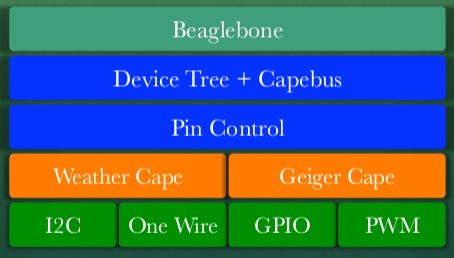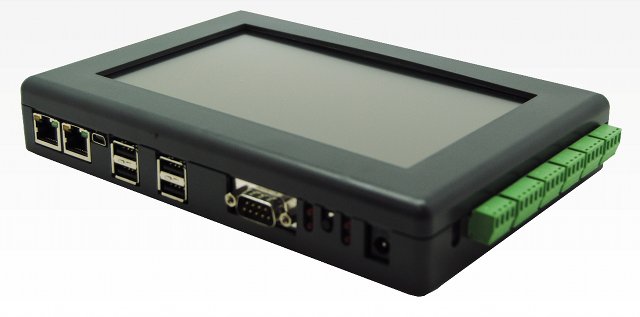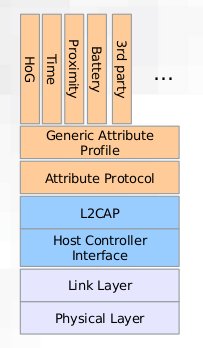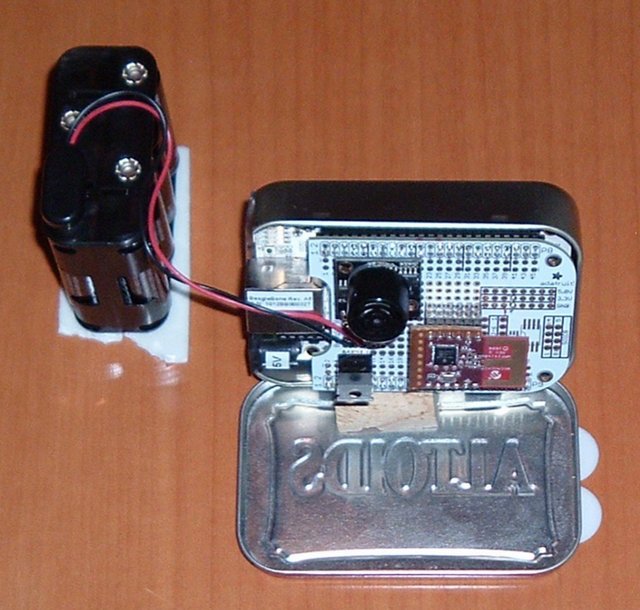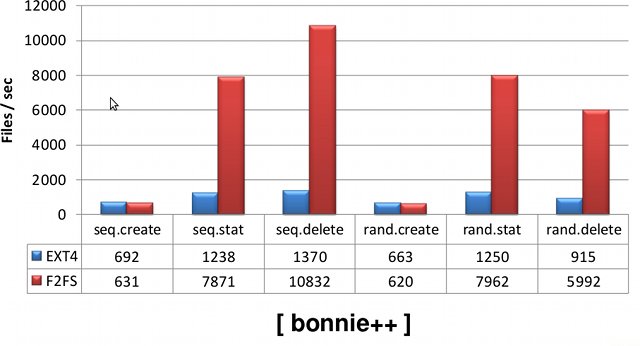Matt Ranostay, technical staff at Ranostay Industries, gives a presentation about a telemetry system based on Beaglebone at the Embedded Linux Conference Europe on November 5, 2012. Abstract: The author will discuss his ongoing and other team members efforts to develop hardware and software that reports sensor data to the community. This talk will be split into several parts a) types of useful sensors b) hardware design of Beaglebone capes c) and telemetry reports to Pachube/Cosm. Demonstrating that in the new world of cheap prototyping boards with I2C, GPIO, and SPI that anyone can setup a decent monitoring system for home security, automation, and weather reporting. There will be a live demo of prototype geiger counter + weather station. The audience targeted is the professional hobbyist who likes to hack on microcontrollers in their spare time. It will take little to medium knowledge of electrical engineering to follow this talk. […]
Porting Android 4.0 to a Custom Industrial Board Based on TI OMAP 3 – ELCE 2012
Matthias Brugger, embedded engineer at ISEE, describes the steps the company had to follow (referred to as a “war story”) to port Android 4.0 to a custom industrial board at ELCE 2012, Barcelona, on November 5, 2012. Abstract: This talk will explain the lessons learned by giving a step-by-step introduction of porting Android to a custom board which was designed for an industrial environment. This includes an introduction to the Android build environment, first board bring-up and peripheral integration. The talk will cover bootloader integration, power management. It will focus on the peculiarities configuring Ethernet and Wi-Fi in Android. Also button and display integration, as well as integration of third-party accelerator support will be explained. Android devices are getting popular not only in the mobile market but although in the industrial environment. Porting Android to a custom board can be challenging, especially as little information about Android internals are available. […]
Bluetooth Smart Devices and Low Energy support on Linux – ELCE 2012
Andre Guedes and João Paulo Rechi Vita, software engineers at Instituto Nokia de Tecnologia (INdT), give a presentation about Bluetooth Low Energy support on Linux (BlueZ stack) at the Embedded Linux Conference Europe in Barcelona on November 5, 2012. Abstract: This presentation will cover a brief introduction on how the Bluetooth Low Energy technology works. Then it will present the current status of its support on Linux, presenting the available APIs and how to interact with Bluetooth Smart devices. Then we’ll present the profiles we’re currently working on and what support can be expected to be found on Linux and BlueZ this year. There will be also a few demos of Bluetooth Smart devices working on Linux. The audience of this talk is application or framework developers that want to add support for Bluetooth Smart devices to their software, hardware vendors,and technology curious. Basic Bluetooth understanding is recommended but not […]
Wireless Networking with IEEE 802.15.4 and 6LoWPAN – ELCE 2012
Alan Ott, founder of Signal 11 Software, gives a presentation dealing with wireless networking for the internet of things in Linux, especially with 802.15.4 and 6LoWPAN standards at the Embedded Linux Conference in Barcelona, Spain on November 5, 2012. Abstract: With the rise of the internet of things, low-power wireless devices will become increasingly prevalent. IEEE 802.15.4 is a wireless networking protocol designed for low-power and low-data-rate devices, such as those used in wireless sensor networks. While some higher layer protocols based on 802.15.4 are proprietary, an open standard called 6LoWPAN enables IPv6 traffic over 802.15.4. This presentation will give overviews of 802.15.4, its status in the Linux kernel, hardware support, comparison with other wireless protocols, and a demonstration of a simple 802.15.4/6loWPAN network. This presentation is targeted toward developers who wish to create low-power, low-data-rate wireless networks for sensors or other applications. Attendees can expect to gain a basic […]
OpenOCD: Hardware Debugging and More – ELCE 2012
Peter Stuge, self-employed hardware, software and security consultant, talks about OpenOCD open source tool for JTAG debugging at ELCE 2012 in Barcelona. Abstract: The presentation walks through how to use the OpenOCD open source software to debug embedded systems on the hardware level via JTAG interface, allowing single stepping, setting breakpoints, inspecting register and memory contents and more, starting before the CPU even executes the first instruction. After an introduction to JTAG debugging we look at how to use OpenOCD both standalone for firmware flashing as well as together with the GDB GNU Debugger for convenient debugging of bootloaders or the Linux kernel. These tasks will be demonstrated, and the respective OpenOCD configuration details will be explained.The presentation targets intermediate-level developers who work on bootloaders, BSPs and kernel drivers, deeply embedded systems, and test and production engineers with an interest in using OpenOCD, which can allow unified tooling across all […]
F2FS – A New Flash File System for Mobile Devices – ELCE 2012
Joo-Young Hwang, principal engineer at Samsung, presents F2FS (Flash-Friendly File System), a new file system designed for storage in mobile devices at the Embedded Linux Conference in Barcelona, Spain, on November 5, 2012. Abstract: Recent mobile devices adopt various flash storages as a primary storage. File system support for those flash storages is a must for flash device performance and lifespan. I will present a new file system, called F2FS, designed for mobile flash storages. F2FS is designed considering the characteristics of the underlying flash storage which has flash translation layer (FTL). F2FS outperforms EXT4, which is a popular file system for Android phones, in most of benchmarks. I will describe motivation, design, and implementation of the file system, then show performance comparison data with EXT4. Target audiences are those who are interested in file system support for flash storages such as eMMC and SSD. Kernel and file system expertise […]
Modular Graphics on Embedded ARM – ELCE 2012
Philipp Zabel, kernel developer at Pengutronix, discusses about graphics and video support for Linux on embedded SoCs at Embedded Linux Conference Europe 2012. Abstract: Porting Linux to new ARM based application processors has recently become easier than ever: the kernel gained many new frameworks like common-clock, oftree and pinmux. However, things get complicated when it comes to high end embedded graphics units.Those graphics systems tend to be composed of a multitude of on-SoC functional blocks that can operate on shared graphics buffers and video signals, as well as off-SoC encoder/converter chips that can be mixed and matched with any SoC.The old framebuffer is certainly not enough for today’s hardware any more, while modern frameworks like KMS and DRM have their own hassles on non-PC style graphics systems.The talk outlines issues we found while working on graphics and video support for the MX53 and MX6 CPUs and gives suggestions for possible […]
Embedded Linux Boot Time Optimizations – ELCE 2012
Alexandre Belloni, embedded Linux engineer and trainer at Adeneo Embedded, gives a presentation about different techniques to optimize boot time for Embedded Linux at ELCE 2012. He also explains how they’ve measured the boot time. Abstract: A common problem faced when embedding Linux is the long boot time before the system is functional. There are many ways to improve boot up time. For a particular project, we had to answer a CAN message from Linux userspace in less than 420 ms from going out of CPU reset. We will describe our methodology and the techniques we finally chose to implement in that particular use case. We will also detail how we measured the boot time efficiently. A live demo will show the results of our work. More specifically, Alexandre discusses two projects at Adeneo where boot time was critical: An automotive platform based on Freescale i.mx53 needs to reply to […]


